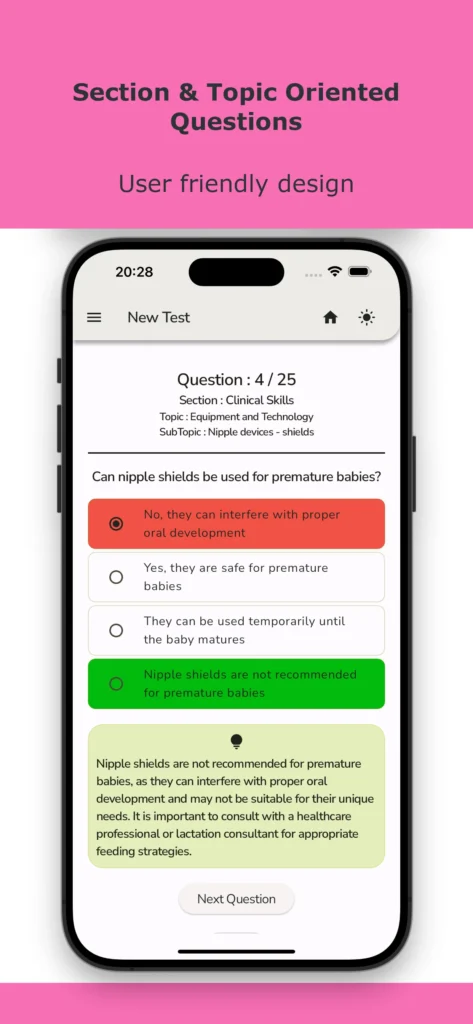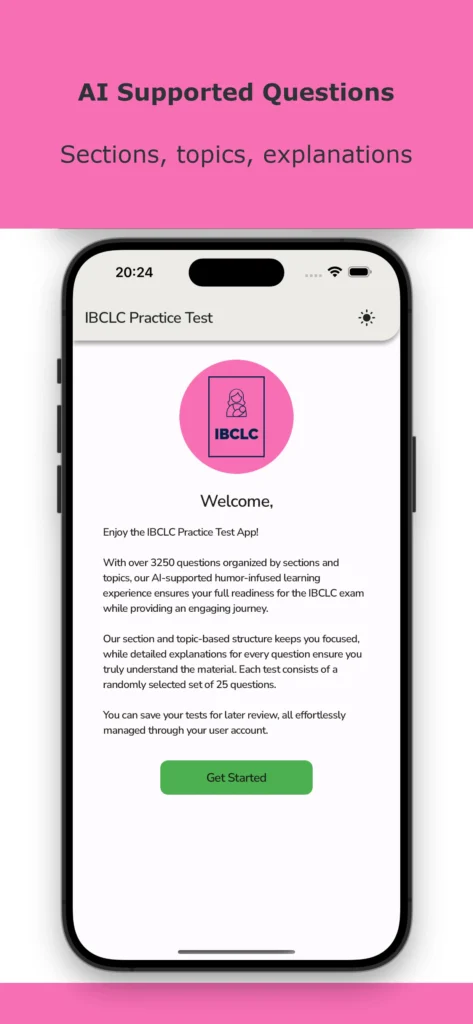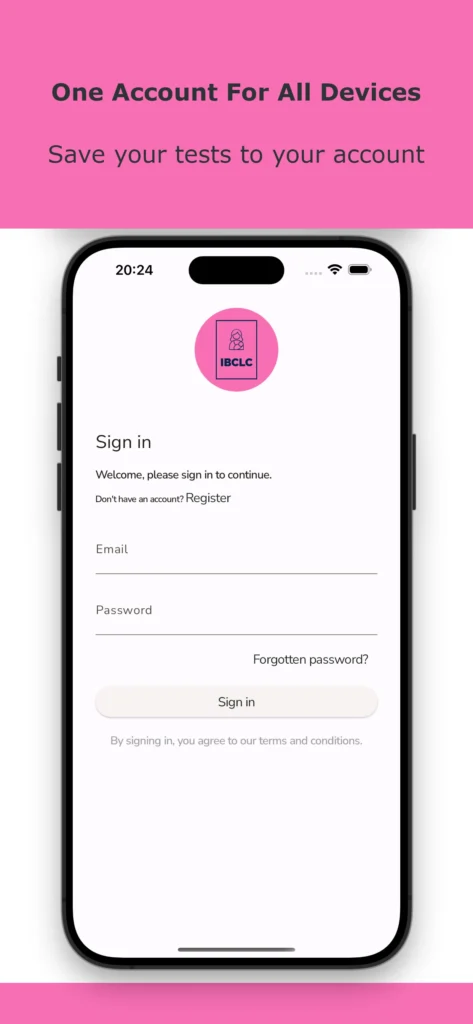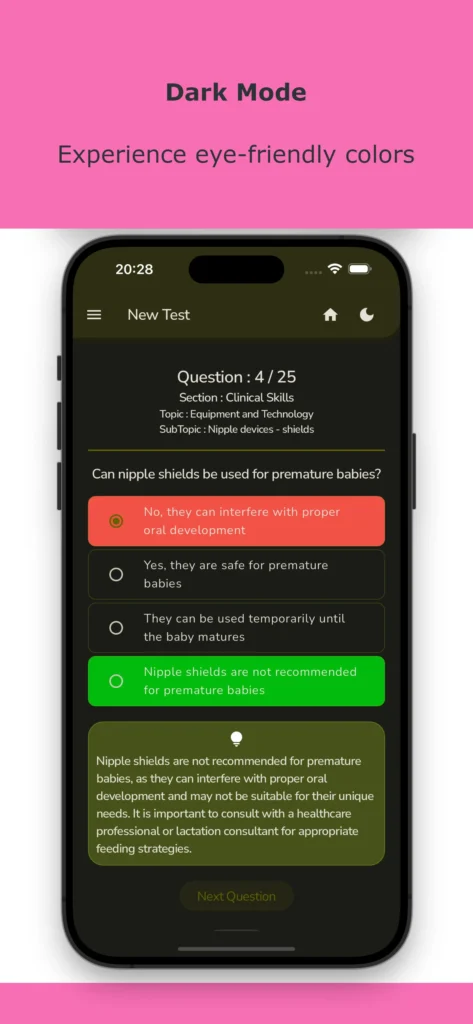Introduction
Welcome to our comprehensive guide on how to find an IBCLC (International Board Certified Lactation Consultant). If you’re a new parent or expecting a baby, you may have heard about the importance of breastfeeding and the role of an IBCLC in supporting successful breastfeeding journeys. In this guide, we will walk you through the process of finding an IBCLC near you, whether you’re in the United States, the United Kingdom, or any other location.
Breastfeeding is a natural and beautiful way to nourish your baby, but it can also come with challenges. An IBCLC is a healthcare professional who specializes in lactation and breastfeeding support. They have undergone extensive training and certification to provide evidence-based guidance and assistance to parents.
Now, you might be wondering why you need an IBCLC. While breastfeeding is a natural process, it doesn’t always come easily to every parent and baby. Many factors can affect breastfeeding, such as latch issues, low milk supply, nipple pain, and more. An IBCLC can help identify and address these challenges, providing personalized support and guidance tailored to your unique situation.
Why Choose an IBCLC?
When it comes to breastfeeding support, an IBCLC is the gold standard. They are the only healthcare professionals specifically trained and certified in lactation management. This means they have the knowledge and expertise to help you overcome breastfeeding difficulties and achieve your breastfeeding goals.
IBCLCs are also experienced in working with a wide range of breastfeeding challenges, including premature babies, twins or multiples, babies with special needs, and mothers with medical conditions. They can provide guidance on breastfeeding positions, proper latch techniques, pumping and storing breast milk, and much more.
How to Find an IBCLC Near You
Now that you understand the importance of an IBCLC, let’s explore how to find one near you. The process may vary depending on your location, but here are some general steps to help you get started:
- Ask for Recommendations: Reach out to your healthcare provider, pediatrician, or local breastfeeding support groups for recommendations. They may be able to provide you with a list of trusted IBCLCs in your area.
- Online Directories: Use online directories such as the International Lactation Consultant Association (ILCA) or La Leche League International to search for IBCLCs near you. These directories allow you to filter by location and provide detailed profiles of each consultant.
- Local Support Groups: Attend local breastfeeding support groups or La Leche League meetings. These gatherings often have IBCLCs present who can offer guidance and recommendations.
- Health Insurance: Check with your health insurance provider to see if they cover lactation consultant services. They may have a list of in-network IBCLCs you can choose from.
Remember, finding the right IBCLC is a personal decision. Take the time to research and reach out to potential consultants to ensure they align with your needs and values. In the next sections of this guide, we will dive deeper into the process of finding an IBCLC in specific regions, such as the United States and the United Kingdom.
Why You Need an IBCLC
What is an IBCLC?
An International Board Certified Lactation Consultant (IBCLC) is a healthcare professional who specializes in breastfeeding support and lactation management. They have extensive knowledge and expertise in helping mothers and babies overcome breastfeeding challenges and achieve successful breastfeeding.
The Importance of Breastfeeding Support
Breastfeeding is a natural and beneficial way to nourish and bond with your baby. However, many mothers face difficulties and may need professional guidance and support to establish and maintain breastfeeding.
Having a knowledgeable and experienced IBCLC by your side can make a significant difference in your breastfeeding journey. They can provide you with evidence-based information, practical tips, and personalized guidance to help you overcome common breastfeeding challenges and ensure a successful breastfeeding experience.
Benefits of Working with an IBCLC
Here are some key benefits of working with an IBCLC:
- Expertise and Knowledge: IBCLCs undergo extensive training and education to become certified. They have in-depth knowledge of lactation physiology, breastfeeding techniques, and common breastfeeding issues.
- Individualized Support: An IBCLC will assess your unique situation and provide personalized support tailored to your specific needs and goals.
- Problem-Solving Skills: IBCLCs are skilled in identifying and addressing breastfeeding challenges. They can help you troubleshoot issues such as low milk supply, latch difficulties, nipple pain, and more.
- Emotional Support: Breastfeeding can be an emotional journey, and an IBCLC can provide emotional support and reassurance during challenging times.
- Continuity of Care: IBCLCs work closely with other healthcare professionals, such as pediatricians and obstetricians, to ensure coordinated and comprehensive care for you and your baby.
How to Find an IBCLC
Now that you understand the importance of working with an IBCLC, let’s explore how you can find one:
- Ask for Recommendations: Seek recommendations from your healthcare provider, friends, or local breastfeeding support groups. They may be able to recommend an IBCLC who has a good reputation and track record.
- Online Directories: Utilize online directories that specialize in connecting individuals with IBCLCs. These directories allow you to search for IBCLCs based on location, language, and other preferences.
- Professional Organizations: Check the websites of professional organizations such as the International Lactation Consultant Association (ILCA) or your country’s lactation consultant association. They often have directories or referral services to help you find an IBCLC.
- Local Hospitals and Birth Centers: Contact local hospitals and birth centers to inquire about their lactation support services. They may have IBCLCs on staff or be able to provide recommendations.
- Insurance Coverage: Check with your health insurance provider to see if they cover lactation consultations with an IBCLC. If they do, they may have a list of approved providers.
Remember, finding the right IBCLC is essential for a positive breastfeeding experience. Take the time to research and choose someone who aligns with your goals and values.
How to Find an IBCLC Near You
What is an IBCLC?
If you’re a new parent or expecting a baby, you may have heard the term ‘IBCLC’ and wondered what it means. IBCLC stands for International Board Certified Lactation Consultant. These professionals are experts in breastfeeding and lactation support, providing valuable guidance and assistance to mothers and families.
Why Should You Find an IBCLC?
While breastfeeding is a natural process, it doesn’t always come easily to every mother and baby. Challenges such as latching difficulties, low milk supply, or painful nursing can arise, making it crucial to have the support of a knowledgeable professional. An IBCLC can help address these issues, offering evidence-based advice and personalized strategies to ensure a successful breastfeeding journey.
How to Find an IBCLC Near You
When it comes to finding an IBCLC near you, there are several resources and strategies you can utilize:
- 1. Online Directories: Start your search by checking online directories that list IBCLCs in your area. Websites like the International Lactation Consultant Association (ILCA) and the United States Lactation Consultant Association (USLCA) have comprehensive directories that allow you to search for IBCLCs based on location.
- 2. Local Hospitals and Birthing Centers: Contact your local hospitals and birthing centers to inquire about lactation support services. Many of these facilities have IBCLCs on staff or can provide recommendations for trusted consultants in the community.
- 3. Pediatricians and Obstetricians: Reach out to your child’s pediatrician or your obstetrician for recommendations. These healthcare professionals often work closely with IBCLCs and can refer you to trusted experts in your area.
- 4. Local Breastfeeding Support Groups: Attend local breastfeeding support groups or La Leche League meetings. These gatherings are not only a great way to connect with other breastfeeding mothers but also an opportunity to seek recommendations for IBCLCs from experienced moms.
- 5. Online Communities: Join online breastfeeding communities and forums where you can ask for recommendations from other mothers who have worked with IBCLCs in your area. Facebook groups and online parenting forums can be valuable resources for finding trusted lactation consultants.
Questions to Ask When Choosing an IBCLC
Once you have a list of potential IBCLCs, it’s important to ask the right questions to ensure you find the best fit for your needs. Consider asking the following:
- What is your experience as an IBCLC?
- Do you have any additional certifications or specialized training?
- What is your approach to breastfeeding support?
- What services do you offer?
- What are your fees and insurance coverage?
- Can you provide references from previous clients?
By asking these questions, you can gather important information about the IBCLC’s qualifications, expertise, and approach to breastfeeding support. This will help you make an informed decision and choose an IBCLC who aligns with your goals and values.
Conclusion
Finding an IBCLC near you is an essential step in ensuring a successful breastfeeding journey. These lactation consultants are valuable resources, providing expert guidance and support to help you overcome any breastfeeding challenges you may encounter. Utilize online directories, local healthcare providers, support groups, and online communities to find trusted IBCLCs in your area. Remember to ask the right questions and choose an IBCLC who meets your specific needs. With their assistance, you can navigate the breastfeeding experience with confidence and achieve your breastfeeding goals.
The Importance of an IBCLC Mentor
Why is an IBCLC Mentor Important?
When it comes to breastfeeding, having the support and guidance of an International Board Certified Lactation Consultant (IBCLC) mentor can make a world of difference. An IBCLC mentor is a highly trained professional who specializes in providing evidence-based lactation support and guidance to breastfeeding parents.
One of the key reasons why finding an IBCLC mentor is important is because breastfeeding can sometimes be challenging, especially for new parents. An IBCLC mentor can provide the necessary knowledge and expertise to help navigate through any difficulties or concerns that may arise during the breastfeeding journey.
Additionally, an IBCLC mentor can provide personalized support and guidance tailored to the specific needs of each breastfeeding parent. They can help with issues such as latching problems, low milk supply, nipple pain, and more. Having a knowledgeable and experienced mentor by your side can greatly increase your chances of breastfeeding success.
How to Find an IBCLC Mentor
Now that you understand the importance of having an IBCLC mentor, let’s explore how you can find one. Here are some steps you can take:
- Start by asking for recommendations from your healthcare provider, friends, or family members who have had positive experiences with IBCLC mentors.
- Check with local hospitals, birthing centers, or breastfeeding support groups in your area. They may have a list of IBCLC mentors who are available for consultations or ongoing support.
- Use online directories or search engines to find IBCLC mentors near you. You can search for terms like ‘find an IBCLC near me’ or ‘IBCLC find a lactation consultant’ to get a list of professionals in your area.
- Consider reaching out to professional organizations such as the International Lactation Consultant Association (ILCA) or the United States Lactation Consultant Association (USLCA) for resources and referrals.
Remember to take into account factors such as location, availability, and cost when choosing an IBCLC mentor. It’s important to find someone who is a good fit for you and your specific needs.
Conclusion
Having an IBCLC mentor can be a game-changer when it comes to breastfeeding success. They provide invaluable support, guidance, and expertise to help you overcome any challenges that may arise. By following the steps outlined above, you can find an IBCLC mentor who will be there for you every step of the way on your breastfeeding journey.
Tips for Choosing the Right IBCLC
1. Research and Gather Information
When looking for an IBCLC (International Board Certified Lactation Consultant), it’s important to do your research and gather as much information as possible. Start by searching online for IBCLCs in your area or use the ‘find an IBCLC’ tool provided by the International Lactation Consultant Association (ILCA). This will give you a list of certified lactation consultants near you.
Additionally, you can ask for recommendations from your healthcare provider, friends, or family members who have previously worked with an IBCLC. Their personal experiences can provide valuable insights and help you make an informed decision.
2. Check Credentials and Certification
Before choosing an IBCLC, it’s crucial to check their credentials and certification. Look for lactation consultants who are certified by the International Board of Lactation Consultant Examiners (IBLCE). This certification ensures that the consultant has met the rigorous standards set by the IBLCE and has the necessary knowledge and skills to provide lactation support.
You can verify an IBCLC’s certification by visiting the IBLCE website and searching for their name in the directory of certified lactation consultants. This will give you peace of mind knowing that you are working with a qualified professional.
3. Consider Experience and Specializations
When choosing an IBCLC, consider their experience and any specializations they may have. Some lactation consultants have specific expertise in areas such as breastfeeding multiples, tongue tie, or breastfeeding after breast surgery. If you have any specific concerns or unique circumstances, finding an IBCLC with relevant experience can be beneficial.
Additionally, consider the number of years the lactation consultant has been practicing. While experience is not the sole indicator of competence, it can provide insights into their level of expertise and ability to handle various breastfeeding challenges.
4. Assess Communication and Support
Effective communication and support are crucial when working with an IBCLC. During your initial consultation or interview, pay attention to how the lactation consultant communicates and whether they make you feel comfortable and supported. A good IBCLC should listen attentively, address your concerns, and provide clear and practical guidance.
It’s also important to consider the availability of the lactation consultant. Find out if they offer phone or email support between appointments, as breastfeeding challenges can arise at any time. Having access to ongoing support can greatly enhance your breastfeeding journey.
5. Consider Accessibility and Convenience
When choosing an IBCLC, consider their location and availability. Opt for a lactation consultant who is conveniently located and easily accessible, especially during the early days of breastfeeding when frequent visits may be necessary.
Additionally, inquire about their availability and scheduling options. Find out if they offer flexible appointment times or home visits, particularly if you have mobility constraints or prefer the comfort of your own home.
6. Seek Reviews and Testimonials
Reading reviews and testimonials from previous clients can provide valuable insights into the quality of care provided by an IBCLC. Look for reviews on their website, social media platforms, or online directories. Positive reviews and testimonials can give you confidence in your choice, while negative reviews can serve as red flags.
Keep in mind that everyone’s experience may vary, so it’s important to consider multiple reviews and testimonials to get a balanced perspective.
7. Trust Your Instincts
Ultimately, trust your instincts when choosing an IBCLC. If something doesn’t feel right or you don’t feel a connection with a particular lactation consultant, it’s okay to explore other options. Building a trusting and supportive relationship with your IBCLC is essential for a successful breastfeeding journey.
Remember, finding the right IBCLC is a personal decision, and what works for one person may not work for another. Take your time, ask questions, and choose an IBCLC who aligns with your values and goals.
Conclusion
In conclusion, finding an IBCLC (International Board Certified Lactation Consultant) is an important step in your breastfeeding journey. Whether you are a new mother struggling with breastfeeding or seeking guidance and support, an IBCLC can provide you with the expertise and knowledge you need. By utilizing the tips and resources mentioned in this guide, you can easily find an IBCLC near you.
Remember, an IBCLC is a highly trained professional who can offer evidence-based advice and support to help you overcome any breastfeeding challenges you may face. They can provide personalized care and guidance tailored to your specific needs.
When searching for an IBCLC, consider using online directories, asking for recommendations from healthcare providers or other mothers, and checking with local breastfeeding support groups. It’s important to find someone who is experienced, knowledgeable, and compassionate.
Once you find an IBCLC, don’t hesitate to reach out for help. They are there to support you and your baby on your breastfeeding journey. Remember, breastfeeding is a learned skill, and with the right support and guidance, you can overcome any challenges and have a successful breastfeeding experience.
If you’re looking for an IBCLC in the UK, you can visit the website of the Association of Breastfeeding Mothers or the Lactation Consultants of Great Britain for a list of certified consultants in your area.
Finding an IBCLC mentor can also be beneficial if you are considering a career in lactation consulting. Mentors can provide guidance, support, and valuable insights into the profession. You can reach out to local IBCLC organizations or attend conferences and workshops to connect with experienced IBCLCs who may be willing to mentor you.
Remember, finding an IBCLC is an investment in your breastfeeding journey. Their expertise and support can make a significant difference in your breastfeeding experience. Don’t hesitate to reach out and seek their help if you need it. Good luck on your breastfeeding journey!








